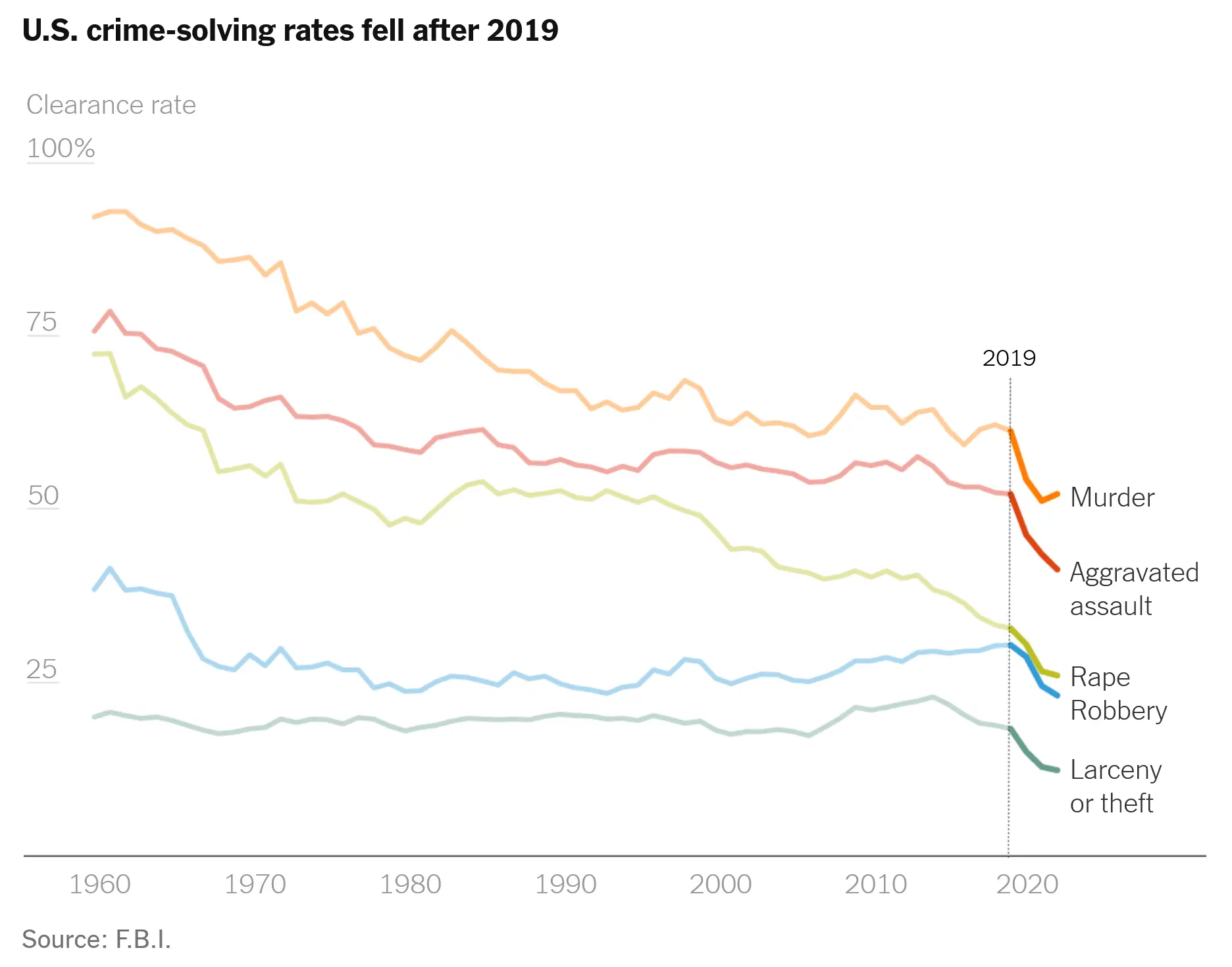While headlines tend to focus on falling clearance rates in large liberal cities, the decline occurred nationwide in both red and blue cities, counties and states. The violent crime clearance rate, for example, fell considerably between 2019 to 2022 in big cities, which tend to be led by Democrats, as well as in small cities and suburban and rural counties, which tend to be led by Republicans.



Eh?
I said that it’s “not necessarily the case that” one thing and “it could be that” something else.
Logic and plausibilty are all that’s necessary.
when asking for evidence, i didn’t expect equivocation and, “it’s just a guess, bro,” hand-waving in response-- see, this is why i was skeptical and asked.
no. evidence is necessary. otherwise, it’s just speculation, and that’s just not good enough.
What the fuck are you on about?
That’s everything I said, right there. What part of it are you not understanding?
Of course it’s fucking speculation! What the fuck else did you think it was?!
It would be equivocation if there was a disjunct between the intended meaning of what I said at one point and the intended meaning of the same thing at some other point.
But I’ve been entirely consistent in what I’ve said. The disjunct is between what YOU thought I meant and what I actually said, and that’s your fucking problem - not mine.
Yeah, I’m not reading that hissy fit. When you make assertions, back it up with evidence. If it’s just a guess, say so.
They did say so, from the start.
Then it should be easy for you to show me the quote where they said it was just guess.
“It could be” is a direct quote from their second sentence.
So you admit that they didn’t say, “it’s just a guess.” Why did you lie then and claim they did?
Lol, good job 👍